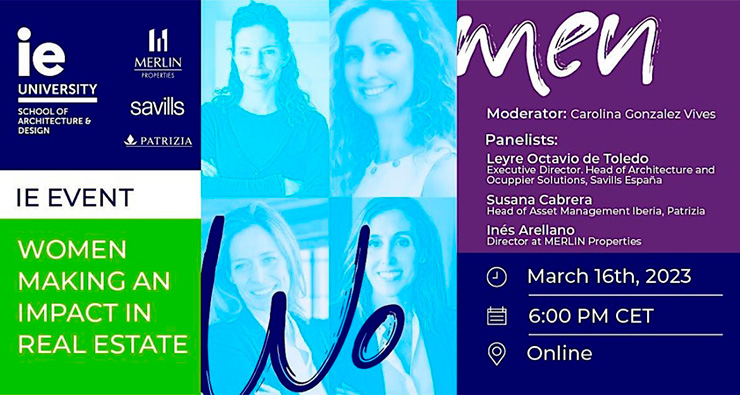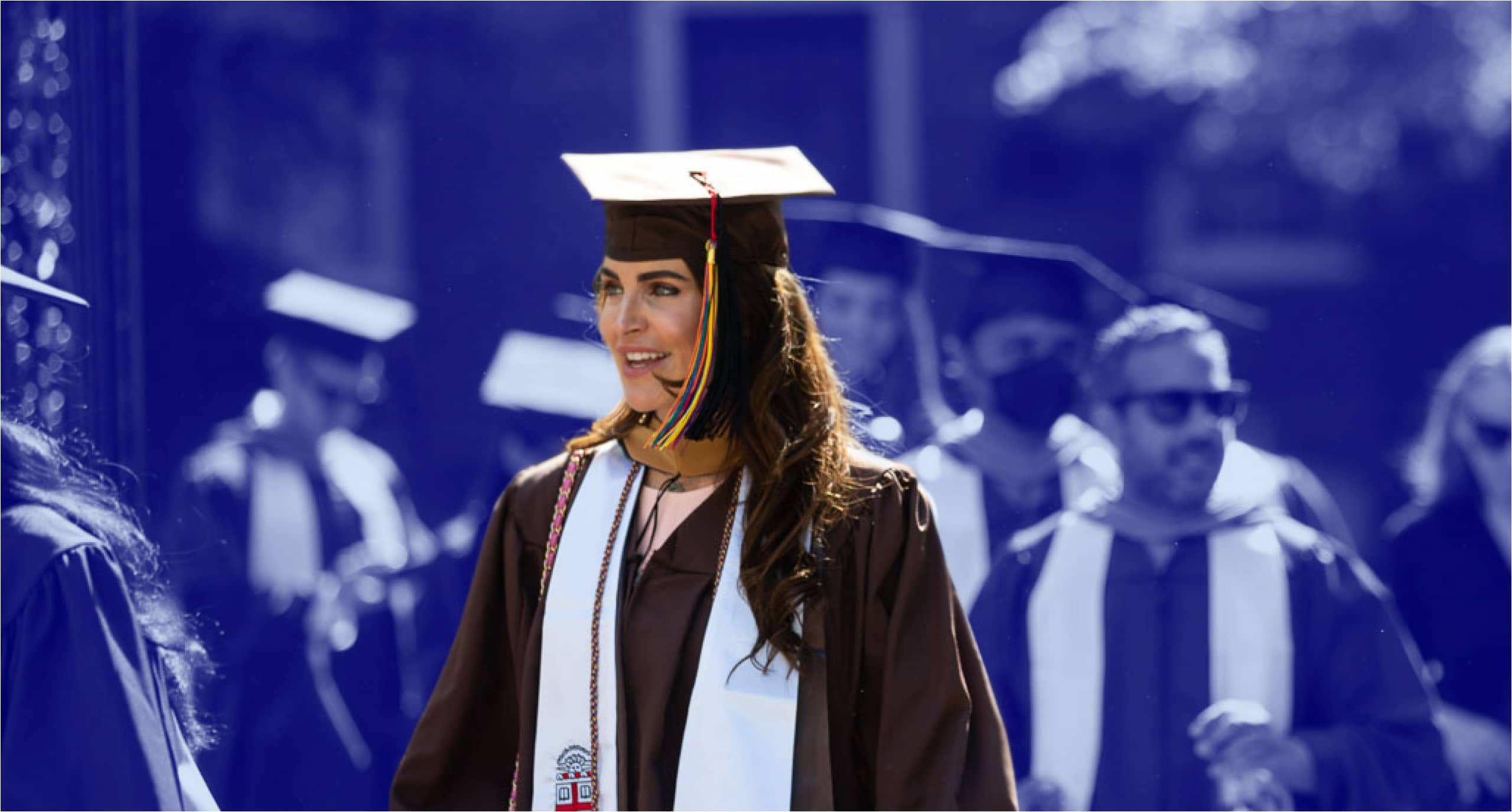01/04/2023
As a space that has long been dominated by men, the real estate world can often feel like intimidating territory for women. Promoting gender diversity and inclusivity lies at the heart of IE University’s efforts to encourage more female graduates into the industry, and this new scholarship is just one of their latest initiatives.
As Harriet Beecher Stowe once said, “Women are the real architects of society,” and IE School of Architecture & Design is certainly taking that reflection literally. As part of its efforts to promote female talent in a traditionally male-dominated field and inspire other women to pursue real estate careers, the school held an online panel discussion. The event was hosted by Carolina Gonzalez Vives, partner at Hydra Design and co-director of the Master in Real Estate Development, who was joined by guest speakers, Susannah Coulter and Leyre Octavio.
Susannah Coulter is the head of asset management at Patrizia, a global real estate investment firm. She is responsible for managing the Spanish and Portuguese portfolio, which includes assets totaling 2.7 billion euros across various sectors such as residential, logistics and hotels. Coulter shared her experiences working in real estate having come from a finance background, leading to her current role where she focuses on developing and implementing strategies to optimize the performance of her portfolio.
Leyre Octavio is an architect and currently serves as head of architecture and occupier solutions at Savills, a global real estate firm. Her current role involves leading the design and delivery of workplace solutions for clients across a number of built environment sectors, specifically corporate, retail and healthcare.
Both speakers shared their perspectives on the role of women in the industry, underlining the benefits of diversity in the workplace.

As Carolina highlights: “At IE School of Architecture and Design, we often have 25 people in a class made up of 20 different nationalities.” In that sense, Leyre explains how diversity, not only of people but also of perspectives, is hugely important in devising more complex solutions in the field. As for her particular case, she is both grateful and hopeful for the future: “I’m fortunate that my company really makes this a reality in my division; the diversity of profiles, women in management positions and a commitment to meritocracy. I think in a decade’s time, this will be common in every company in every sector,” she says.

The discussion also touched on the crucial nature of networking and mentorship in the real estate world.
Indeed, all of the panelists are members of WIRE (Women in Real Estate), a networking association for female real estate professionals. Susana noted how having access to guidance from a senior member of the industry had helped her gain a broader perspective on the field as she was starting out, while Leyre framed these programs as a mutual learning experience, calling the relationship “a win-win.” Of course, a mentor may have more experience, but mentees bring fresh points of view and ideas and this exchange of knowledge can certainly prove beneficial for everyone involved.
As Carolina pointed out, another of the many ways IE University is supporting women in getting their foot in the door of the real estate business is through its new Women in Real Estate High Potential Award scholarship. Following last year’s successful launch, it now offers four High Potential Student Awards, to be granted to female candidates for the Master in Real Estate Development full-time or part-time programs. Both the speakers at this event and IE School of Architecture and Design all agree on architecture’s power to influence people’s lives and make a positive social impact. Of course, the role of an architect is to create spaces that inspire people to grow and improve and it is in that setting where IE University feels right at home.









